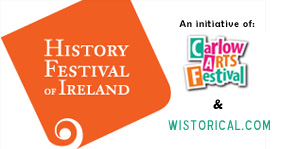History Festival of Ireland 2012
In 2012 the inaugural History Festival of Ireland was curated by author and historian Turtle Bunbury. This was its website.
Content is from the site's 2012-2013 archived pages.
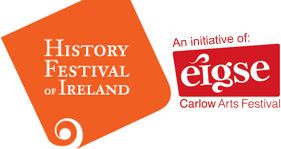
The History Festival of Ireland 2012
Saturday 9th June - Sunday 10th June
The inaugural History Festival of Ireland is curated by author and historian Turtle Bunbury and is part of Eigse 2012. It aspires to educate and to be a bit of fun, to resolve and to confound, to question and to explore. Ireland boasts dozens of literary festivals and spoken word events “ but none of them give themselves over to the discussion of History and the things that we have and haven't learnt from it.
Featuring some of the most learned minds of our generation, the two-day festival will be a veritable feast of high-octane historical banter, embracing topics from the impact of Brian Boru's victory at Clontarf a thousand years ago to the treatment of Irish soldiers who served in the British Army after the Second World War. We will look at the heroes and villains of our past, and muse upon ways in which we can make history relevant in the future. We will explore the historical legacies of Catholicism and Empire, of Slavery and Sport, of War and Peace. And we hope to send you home again feeling a little wiser for your visit. As Benjamin Pred, who studied history at Oberlin College, once said, It's one thing to read about history in books, but it's quite another to visit the place in which the history played out.
Admission to the Festival Marquee is 10 per day, and the Library Talks are an additional 10 per event.

Booking
Tickets are 20 for each day of the festival, and enable you to stroll freely between all the talks and events.
Tickets are available through the following options:
At the George Bernard Shaw Theatre Box office (College Street) in Carlow
About Us
-
The History Festival of Ireland is taking place amidst the ruins and walled gardens of Ducketts Grove in Co. Carlow. Admission to the History Festival is 20 per day. Please use the booking pageto find out more about purchasing tickets. We welcome all suggestions and feedback for The History Festival so please share your thoughts with us by using the contact form to the right
Turtle Bunbury
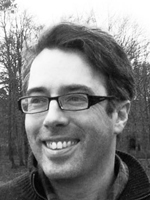
Author and historian Turtle Bunbury is the founding curator of the History Festival of Ireland. Turtle is one of the co-presenters of the Genealogy Roadshow' the second series of which is shortly to be aired on RTE1. His books include the award-winning Vanishing Ireland series, Sporting Legends of Ireland, The Irish Pub and Living in Sri Lanka. He is also the founder of Wistorical, a Facebook phenomenon you should know all about. See www.wistorical.com or www.turtlebunbury.com
Notes: When the archived version of this site was first posted, we noticed that the US search for "The History Festival of Ireland" had some pretty weird results in Google. On page one, at the top was an article about Irish gangs - something definitely not very inviting. Google has a history of these kinds of errors, some more problematic than others. Some are actually harmful to individuals or businesses. Eventually the search results on this search faded away, but it was live for many months in a way that might have harmed attendance if live during the festival. Google needs to get it's act together, but we think it's more important that the US Congress enact laws requiring them to be more accountable. If you saw the bad result when searching for the festival, you were not the only one.
Useful Info
-
Food
Picnics are welcome so, if the weather looks right, bring a rug and hamper, but please be sure to clean up afterwards.

ParkingParking provided to all ticket-holders.
Where lovers of the past take centre stage
Friday, June 08, 2012
By Arlene Harris / www.irishexaminer.com/Turtle Bunbury is inviting you into his family's stately home, Lisnavagh House, for a one-of-a-kind history festival,says Arlene Harris
IRELAND is steeped in culture. Our rich historical past has shaped the people we are and while we all have stories and memories passed down, not many of us have spent a childhood immersed in our heritage.
But journalist and writer Turtle Bunbury was raised in Lisnavagh House in Carlow. The beautiful, stately dwelling was built in the 1600s and has been in his family since, serving as an idyllic childhood home and as the motivation for Bunbury's fascination with the past.
Having written many historical articles and books, Bunbury has put his love of history into action and will host Ireland's inaugural historical festival at Lisnavagh House on Jun 9 and 10.
I have been a historical bore since I was about five and there's no doubt growing up in this house made me an historical person, says Bunbury (who is married to Ally and has two daughters, Jemima 5, and Bay, 3). I was a toy-soldier fanatic, forever waging wild, tactically unsound battles over landscapes made up of bread-bin hills and my father's welly-boot caves. And the walls had portraits that would eyeball me wherever I went - they used to scare the hell out of me until I worked out who they all were. Now, they're like old friends and I even wink at them on occasion, he says.
The house is steeped in history, right back to when my ancestors came to Ireland (from England) in the late 1600s and built Lisnavagh House. Then, a Bunbury married the heiress of a corrupt banker and secured a small fortune that sustained the family through until the early 20th century, during which time they built a bigger house - it was massive, probably the biggest house in Carlow.
My grandparents resized the house in 1952 and it's now a rather more manageable home, where my eldest brother and his wife live and they run it as an upmarket wedding venue. They've very kindly lent it to me for the History Festival, and while most of the events will take place in a marquee on the lawn, the eight library events will take place in the magnificent, oak-panelled library.
Although it will be the first festival of its kind in the country, Bunbury says we have a wealth of suitable experience and knowledge.
There's hardly an acre of Ireland which hasn't been impacted by an incident from the annals of history, he says. The countryside is smothered in ring-forts and dolmens, battlefields and churches, ruined castles and lonely graveyards, and that's before you get near the towns and cities.
The big trees that sprawl upon our skyline were planted by men and women, 150, 200 years ago. History is a living, breathing, ever-evolving and utterly fascinating entity.
I feel the whole concept of history has changed dramatically in the past decade, he says. It's no longer simply an endless dirge about dates. It's become a lot more colourful, dramatic and relevant.
The internet has completely fuelled a new age of genealogy, where you have shows like Who Do You Think You Are? and The Genealogy Road Show, which have given everybody an excuse to stop for a moment and think about their own forebears - about their grandparents and great-grandparents, what they did with their lives and where they were from.
So, when you juggle this new and rapidly expanding online interest with the richness of our actual history, I think you have something that is fast-approaching a phenomenon.
What will the festival involve?
It's going to be full of colour and drama and fun and wisdom. The line-up is on the button, with upwards of 30 historians rocking around the place. Fans of history on the radio will recognise Myles Dungan, Patrick Geoghegan and Tommy Graham.
Journalist, author and royal blogger, Tom Sykes shares an office with Turtle and is married to his sister Sasha. He is also on the line-up for the festival and will be discussing a modern event which changed history.
I am going to be talking about the Queen's visit to Ireland last year, says Sykes. I felt it was such a wonderful, joyous healing event. It was also the single most political thing the Queen has ever done.
Topics will also include the Irish in the American Civil War, the fate of Irish soldiers who served for Britain in WWII and the once-legendary Jammets restaurant in Dublin! There will also be contributions from David Norris, Diarmaid Ferriter, Ruth Dudley-Edwards and Manchan Magan.!
Tickets to the History Festival of Ireland cost 10 per person, and separate talks in the house library will cost an additional 10 per person.
Speakers
-
The speakers for the History Festival of Ireland 2012 are:
-
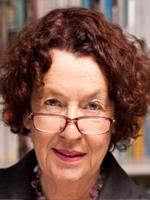
Ruth Dudley Edwards
Dubliner Ruth Dudley Edwards is a prize-winning historian and satirical crime novelist as well as a journalist and broadcaster. Her non-fiction includes Patrick Pearse: the triumph of failure, The Faithful Tribe: an intimate portrait of the loyal institutions and Aftermath: the Omagh bombing and the families' pursuit of justice. -
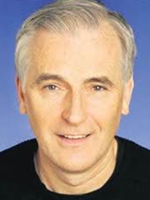
Myles Dungan
Myles Dungan is an author and broadcaster who presently hosts The History Show on RTÉ Radio One. His books include How The Irish Won The West', The Stealing of the Irish Crown Jewels' and They Shall Grow Not Old: Irish Soldiers and the Great War', 'Irish Voices from the Great War', 'Conspiracy: Irish Political Trials' and 'The Captain and the King: William O'Shea, Parnell and late Victorian Ireland.' -
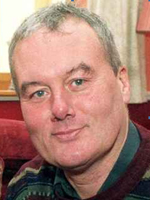
Kevin Myers
Journalist and writer Kevin Myers was born and raised in Leicester in England, and came to Ireland to study History in UCD. He writes for the Irish Independent, having previously written regularly for the "Irishman's Diary" column in The Irish Times. His books include a novel Banks of Green Willow' and an autobiographical account of his time as a journalist in Northern Ireland called Watching the Door'. -
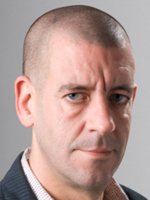
Diarmaid Ferriter
Diarmaid Ferriter is Professor of Modern Irish History at UCD and has published extensively on twentieth century Irish history. His books include the bestsellers The Transformation of Ireland 1900-2000 (2004) and Judging Dev: A Reassessment of the life and legacy of Eamon de Valera (2007). His latest book is Occasions of Sin: Sex and Society in Modern Ireland (2009). He is a regular broadcaster on RTE television and radio. -
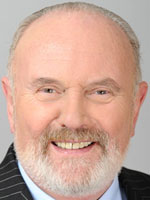
Senator David Norris
Senator David Norris is a noted Joycean scholar, a gay, human and civil rights activist, and a member of Seanad Eireann representing Trinity College Dublin since 1987. He most recently came to public notice during his bid to become the 9th President of Ireland. -
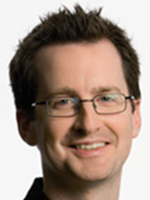
Dr Patrick Geoghegan
Dr Patrick Geoghegan has been a lecturer in the Department of History at Trinity College Dublin since 2001. Dr Geoghegan is also the presenter of a weekly history radio show on Newstalk 106-108, Talking History, in which he debates historical issues from the ancient world to the present day. -
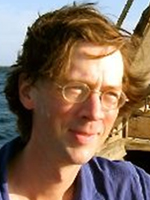
Manchán Magan
Manchán Magan is a writer, and documentary maker. His travel programmes for TG4/Travel Channel explored remote cultures. He has written books on India, Africa and South America. His bilingual plays are critically acclaimed. He writes the Magan's World column for the Irish Times. -
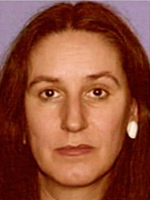
Catriona Crowe
Catriona Crowe is Head of Special Projects at the National Archives of Ireland. She is Manager of the Irish Census Online Project. She is editor of Dublin 1911, published by the Royal Irish Academy in late 2011 and contributes regularly to the broadcast and print media on cultural and historical matters. -
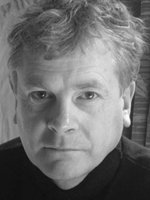
Maurice Walsh
Maurice Walsh is the author of The News from Ireland: Foreign Correspondents and the Irish Revolution and has reported for the BBC from Africa, Asia, Latin America and the United States. He was the Alistair Horne Fellow at St Anthonys College, Oxford for 2011/12 and teaches journalism at Kingston University. His work has appeared in numerous newspapers and magazines including The New Statesman and the Dublin Review. -

Joshua Levine
Joshua Levine practiced as a barrister for several years before becoming an actor and a writer. His plays have been performed on the London stage and on BBC Radio 4, and he has scripted a television documentary about eighteenth-century London for BBC2. -
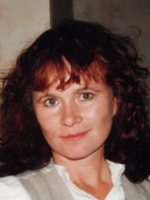
Jeananne Crowley
Jeananne Crowley is a well known Irish actress and writer. She has written two plays, one of which was performed at the Royal Court Theatre, and has also been a regular contributor to national newspapers, including the Sunday Times, The Observer, The Guardian and the Irish Times. -
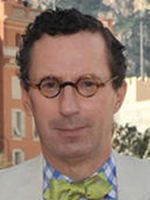
Robert O'Byrne
Robert O' Byrne has written prolifically over the last 20 years on Irish life and art for The Irish Times, The Irish Arts Review and Apollo. His books include The History of the Irish Georgian Society, Hugh Lane, 1875-1915, Desmond Leslie The Biography of an Irish Gentleman and the upcoming story of Luggala, Co. Wicklow. -
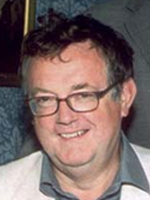
Dr Pat Wallace
Dr Pat Wallace is director of the National Museum of Ireland and is director of the museum's Dublin city excavation programme. He is an internationally recognized scholar in the area of Viking research and early urbanism. -

Tommy Graham
Tommy Graham has edited History Ireland (a magazine not a journal -historyireland.com) since its foundation in 1993. He currently lectures in history and politics at the Dublin programme of Tisch School of the Arts, NYU. For the last few summers he has been stand-in presenter of Newstalk's 'Talking History'. He is also Director of Historical Insights Ireland Ltd. (historicalinsights.ie) which offers Historical Walking Tours of Dublin. For a video of a previous Hedge School go to -
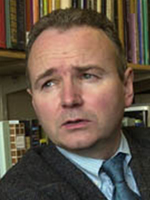
Dr Seán Duffy
Dr Seán Duffy is a graduate of Trinity College, Dublin. He is currently Senior Lecturer in Medieval History in the School of Histories and Humanities -
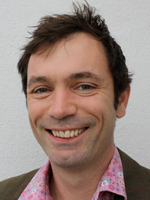
Tom Sykes
Tom Sykes is the Royal Correspondent for the Daily Beast, the online version of Newsweek. He is the author of What Did I Do Last Night?', Blow by Blow' (the official autobiography of Isabella Blow) and the forthcoming autobiography of John Taylor of Duran Duran. -
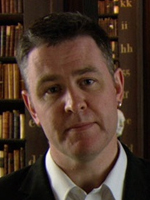
Micheál Ó Siochrú
Professor Micheál Ó Siochrú is a native of Dublin and an associate professor in History at Trinity College Dublin. He has written extensively on 17th-century Ireland and is currently involved in major projects relating to the William Petty's Atlas of Ireland and the letters and papers of Oliver Cromwell. His books include God's Executioner: Oliver Cromwell and the conquest of Ireland' and 'Confederate Ireland 1642-1649: A constitutional and political analysis'. -
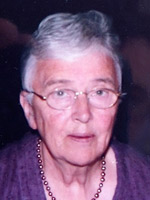
Sister Maura Duggan
Sister Maura Duggan OP has a life long interest in history. Her earlier research was a study of County Carlow in the decade prior to the Act of Union. Her most recent research was published in 2010 under the title In Search of Truth Journeys of Nineteenth Century Irish Dominican Women. -
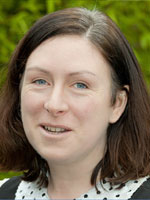
Fiona Fitzsimon
Fiona Fitzsimons is Research Director of Eneclann, a company she co-founded in 1998. Fiona and her research team have also completed some of the largest historical research projects ever undertaken in Ireland. Projects include the Irish Battlefields project, and an audit of the accuracy of the Irish Genealogical Project's database of 19 million records. In the media, Eneclann research credits include the U.K., Irish, Australian and Canadian productions of Who Do You Think You Are?, RTÉ's Ancestors' During the Famine, and PBS's Faces of America and Finding Your Roots, hosted by Henry Loui -
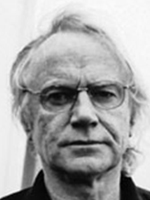
Michael Sheridan
Michael Sheridan has written a number of true crime best sellers including Death In December on the murder of Sophie Toscan Du Plantier, Frozen Blood, Tears Of Blood and Murder In Shandy Hall and co -authored the international best seller on a Magdalen Laundry survivor Kathy O Beirne, Don't Ever Tell. Last year he wrote Murder In Monte Carlo. -
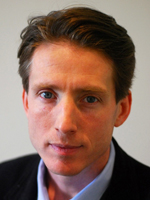
Trevor White
Trevor White is the Director of the Little Museum of Dublin, a new people's museum of Dublin in the 20th Century. Trevor is also the founder of City of a Thousand Welcomes, the founding publisher of The Dubliner Magazine, the founding editor of Ireland's bestselling restaurant guide, The Dubliner 100 Best Restaurants, and the author of two books, Kitchen Con: Writing on the Restaurant Racket, and The Dubliner Diaries. -
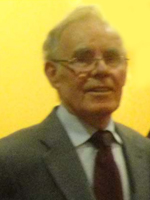
Martin Nevin
Martin Nevin is a native of Leighlinbridge and a retired lecturer from Carlow RTC/IT. Presently he is vice chairman of Carlow Historical and Archaeological Society and represents the society on the Museum Board of Directors. He served as editor of the Society's journal Carloviana for eight years and is now very active on the editorial team. -
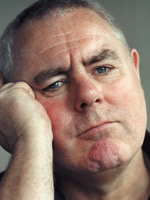
Richard O'Rawe
Richard O'Rawe is the author 'Afterlives: The Hunger Strike and the Secret Offer that Changed Irish History' (2010), and of 'Blanketmen, An Untold Story of the H-Block Hunger Strike'(2005), acclaimed by reviewers across the political spectrum. O'Rawe offers rare insight to the hunger strikes of 1981, having personally taken part in the protest from Long Kesh.
-
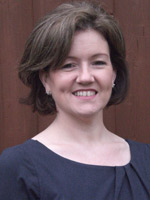
Marian Lyons
Professor Marian Lyons is Head of History at NUI Maynooth. She has published extensively on Franco-Irish relations and on Irish migration to continental Europe in the early modern period, as well as on various aspects of Irish history. A fellow of the Royal Historical Society, Professor Lyons is Chairperson of the Royal Irish Academy National Committee for Historical Sciences and General Editor of the Maynooth Research Guides for Irish Local History Series. She is also Conference secretary of the Catholic Historical Society of Ireland, and a research cluster leader with An Foras Feasa: the nat -
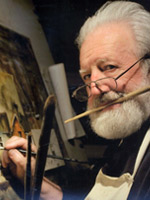
Val Byrne
Val Byrne, architect and artist, was inaugurated Clann Chieftain of the OByrnes in 1992 and went on to be a director and then Chairman of the Clans of Ireland. He has organized many clan rallies and is now promoting DNA research within the Byrne Clann. His illustrated talk will look at some of his experiences over the last 30 years - the Byrnes he has met and the histories of important Byrne name places, in Wicklow and Carlow.
-
-
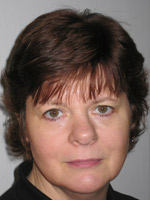
Alison Maxwell
Alison Maxwell, co-author of the best-selling 'Jammet's of Dublin, 1901 to 1967', was raised in County Offaly, schooled at Sutton Park in Dublin and completed an MA in Creative Writing from UCD in 2007. She has three children and lives in County Kildare. -
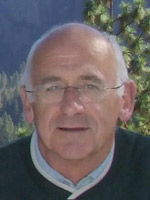
Hugh Fitzgerald Ryan
Hugh Fitzgerald Ryan was born in Skerries, Co. Dublin, and has been writing and painting for many years. He has published six novels, as well as a book of paintings of his native Fingal. The Scribbler described his recent book The Devil to Pay (Lilliput Press 2010) as a balzacian tour-de-force while Books Ireland hailed it as a compelling work of fiction underpinned by solid historical foundations. His next novel, as yet untitled, deals with the Elizabethan conquest of Munster, with special reference to Edmund Spenser, Sir Walter Raleigh and Sir Martin Frobisher.
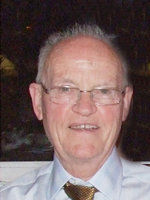
Patrick Devlin
Patrick Devlin has acted as Treasurer of the Federation for Ulster Local Studies for the last five years and Treasurer of the Ulster History Circle for ten years as well as being a member of several local historical societies. He designs creates and maintains web sites for regional and local historical organizations, including that for Hidden Gems and Forgotten People. Patrick is a member of the joint North/South Federation's committee who work together to promote the study of local history throughout the island of Ireland.
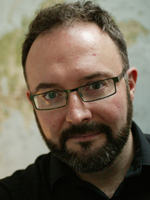
Paddy Cullivan
Paddy Cullivan is the leader of the Late Late Show House Band and the resident Satirist with the Leviathan Political Cabaret. He explores Irish history through maps, slides and song to reveal the quirks and fallacies of our given narrative. His shows 'Irish Maps; Past, Present and Future' and 'You are Now Entering Free Dairy' have entertained audiences all over Ireland, London and New York and he will be bringing his unique approach to the festival.

The History Festival of Ireland 2013
Saturday 15th - Sunday 16th June
Last year's inaugural History Festival of Ireland was deemed such a worthy and sun-blessed event, that its back. Once again curated by author and historian Turtle Bunbury, this year's event takes place amidst the resplendent ruins and walled gardens of Duckett's Grove.
Over 40 leading historians and thinkers from Ireland and abroad will resolve and confound in equal measure, audiences will be given plenty of time to debate and question, and a handful of stage performances of a historical tendency will compete for attention with author interviews and other miscellany relating to everything from ancestry to warmongery.
One ticket will give you access to the entire gamut of talks, lectures, performances and debates for the whole day.
Food and refreshments can be purchased throughout the day and parking is free.
Partners include Federation of Local History Societies * History Teachers Association of Ireland * Genealogical Society of Ireland * Carlow Historical & Archaeological Society * RTE Radio One * Carlow County Council * Wistorical * The Gathering Ireland
Directions
Location
- From Castledermot (exit 4 off the M9 motorway) take the R418 towards Tullow for 6km and turn right at the signed junction.
- From Carlow take the R726 Hacketstown Road for 10km to Killerig Cross Roads. Turn left at this junction onto the R418 for 2.5km, turn left again at the signed junction.
More Background on TheHistoryFestivalOfIreland.com
The History Festival of Ireland was a vibrant, pioneering annual event dedicated to deepening engagement with Irish history. Curated by eminent historian and author Turtle Bunbury, the festival stood out on the Irish cultural calendar for bringing together leading historians, writers, and the public in dialogue at iconic County Carlow venues. This article provides an extensive exploration of the festival—its founding, setting, leadership, programming, reception, and cultural significance—offering a complete orientation for those seeking to understand its legacy.
Origins and Leadership
Founding Vision
Established in 2012, the History Festival of Ireland was the brainchild of Turtle Bunbury, a widely-respected Irish historian and author acclaimed for his accessible and evocative approach to the national past. Bunbury’s background in publications such as the “Vanishing Ireland” project and his roles on television (including co-presenting “The Genealogy Roadshow” on RTE) underscored a mission: to de-mystify history and make it lively, colourful, and directly relevant to the everyday lives of Irish people. The festival arose from a desire to provide a dedicated space for high-level historical discourse—something Ireland’s many literary and spoken word events had not fully offered.
Turtle Bunbury: A Brief Portrait
Bunbury, the festival’s founding curator, has written award-winning books and regularly appears on media platforms discussing Irish history and heritage. His ethos centres on making history approachable and participatory, emphasizing the personal stories, locations, and lived experiences that shape the overarching narrative of Ireland’s past.
Locations and Venues
Lisnavagh House (2012)
The inaugural festival in 2012 was remarkably set in Lisnavagh House—Turtle Bunbury’s ancestral home. This Tudor Gothic mansion, nestled outside Rathvilly in County Carlow, dates to the 19th century and the Bunbury lineage in the area extends to the 1600s. A storied mansion surrounded by lush, rolling countryside and historic woodlands, Lisnavagh has transitioned over the years from a private residence to a renowned wedding and events venue, while maintaining its heritage features and ties to local history.
Duckett’s Grove (2013 Onward)
The second and subsequent editions took up residence at Duckett’s Grove, a dramatic Gothic Revival ruin also in County Carlow. Once the seat of the Duckett family—one of the area’s most powerful landowning dynasties—Duckett’s Grove is famous for its towering turrets, sprawling walled gardens, and an aura of faded grandeur that fits perfectly with a festival intent on evoking the passage of time. Its restored gardens and atmospheric grounds provided a more accessible public space, symbolizing a mission to make history open and communal.
Proximity and Accessibility
Both venues are conveniently located within driving distance of Carlow town. Duckett’s Grove is easily reached via the R726 Hacketstown Road or the R418 from Tullow, with ample signage. Parking was provided to ticket holders, while attendees were encouraged to bring picnics and enjoy the gardens and lawns alongside the formal programming.
Festival Goals, Programming, and Structure
Core Aims
-
To educate in an engaging manner.
-
To spark debate and critical thought (“to resolve and to confound”).
-
To make history relevant, lively, and accessible to all ages and backgrounds.
-
To highlight the connections between Ireland's history and broader European or global trends.
-
To foster respect for scholarship and public enthusiasm for the past.
Themes and Content
The festival embraced wide-ranging topics, from ancient events such as Brian Boru’s Clontarf victory to contemporary themes including the treatment of Irish veterans after World War II or the societal impact of Catholicism and Empire. Topics aimed to be diverse, including war and peace, ancestry, sport, the legacy of slavery, and changing social values.
-
Notably, festival themes often coincided with broader anniversaries or public interest topics, ensuring topical resonance.
Programme Format
-
Talks took place in marquees on the grounds and, for more intimate sessions, in the library of Lisnavagh or the heritage rooms at Duckett’s Grove.
-
Keynote speeches, debates, and panel discussions made up the backbone of the festival.
-
Stage performances, author interviews, and heritage workshops were included to appeal to wider audiences and younger festival-goers.
Admission
-
Tickets were reasonably priced (commonly €20 per day), giving access to all events. Special talks in heritage rooms or the library sometimes incurred an additional fee.
-
The festival’s pricing, picnic-friendly policy, and free parking made it an accessible event for families and enthusiasts.
Speakers and Collaborators
Prominent Contributors
The festival curated a diverse and prestigious lineup drawn from academia, broadcasting, literature, and civil society. Contributors included:
-
Ruth Dudley Edwards: Historian, crime novelist, journalist.
-
Myles Dungan: Broadcaster, RTE’s “The History Show” host, historian.
-
Kevin Myers: Journalist and memoirist.
-
Diarmaid Ferriter: Professor of Modern Irish History, author of bestsellers.
-
Senator David Norris: Joycean scholar, civil rights activist.
-
Patrick Geoghegan: TCD history lecturer and radio host.
-
Manchán Magan: Writer, documentary maker.
-
Catriona Crowe: Head of Special Projects, National Archives of Ireland.
-
Maurice Walsh: Historian, journalist, author.
-
Tom Sykes: Writer, royal correspondent.
-
Michael Sheridan: True crime author, commentator.
-
Trevor White: Founder of the Little Museum of Dublin.
-
Others: Dr. Pat Wallace, Tommy Graham, Dr. Seán Duffy, Micheál Ó Siochrú, Fiona Fitzsimons, Paddy Cullivan, and more.
This high-profile roster reflected the festival's scholarly ambition, while also ensuring appeal to fans of literature, television, and popular culture.
Partners and Support
Key partners included the Federation of Local History Societies, History Teachers Association of Ireland, Genealogical Society of Ireland, Carlow Historical & Archaeological Society, Carlow County Council, RTÉ Radio One, Wistorical (Turtle Bunbury’s history project), and The Gathering Ireland initiative.
Audience, Popularity, and Impact
Who Attended?
The History Festival of Ireland attracted:
-
Local enthusiasts, students, and teachers of history.
-
Nationally-known writers, historians, and campaigners.
-
Families and tourists seeking cultural events outside Dublin.
-
Lovers of authentic Irish heritage experiences.
The festival quickly earned a reputation for intellectually stimulating talks, sociable atmosphere, and accessibility. Reviewers by and large praised the eclectic speaker lineup, lively organization, and the festival’s success in bringing “history to life,” especially against the backdrop of famed historical manors.
Festival Reception and Popularity
Both the public and the press responded enthusiastically, highlighting the festival’s wide appeal, inclusive tone, and innovative use of heritage venues. Its coverage in major newspapers and on national radio was positive, focusing on the event’s unique character and its role in reviving the everyday relevance of history. Organizers noted constructive feedback about the festival’s scheduling and suggested that the relaxed, picnic-friendly ambiance was a standout success.
Press & Media Coverage
-
The festival received significant coverage in outlets like The Irish Times, Irish Examiner, and on RTÉ radio and television.
-
Outlets highlighted not just the stature of contributors but also the festival’s unique format and settings.
-
The event was praised for its role in revitalizing local tourism, bringing new visitors to Carlow, and integrating public engagement with regional historic sites.
Cultural and Social Significance
Making History Relevant
-
The festival’s acclaimed goal was to present history as vivid, essential, and participatory—not merely a catalogue of dates or “an endless dirge.”
-
Events and speakers emphasized genealogy and personal stories, often tying in with the surge in interest fueled by ancestry programs and online genealogy research.
-
By rotating between significant Carlow estates and ruins, the festival reinforced the importance of “place” in historical memory and learning.
Community and Heritage Boost
-
The festival elevated Carlow’s profile as a destination for cultural tourism.
-
It fostered appreciation for the stewardship of Ireland’s “big houses,” linking private heritage with public good.
Legacy: Inspiration for Later Events
-
Though not run annually for a long period, the festival contributed to a new wave of history-themed festivals and events in Ireland—including the Dublin Festival of History and various local “heritage weeks.”
-
Its mix of top-tier speakers and accessible public participation served as a model for future events in cultural programming across Ireland.
Specific Highlights and Examples
-
2012 Festival: Held at Lisnavagh House, focused on topics such as Brian Boru, Irish in WWII, genealogical research, and how modern media is reshaping our understanding of history.
-
2013 Festival: Moved to Duckett’s Grove; expanded to feature more than 40 historians, and integrated stage performances, author interviews, and diverse debates.
Session Examples:
-
Talks on Queen Elizabeth II’s state visit to Ireland.
-
Re-assessments of the Irish involvement in the American Civil War.
-
Personal stories from Irish soldiers in British service.
-
Sessions on historic Dublin eateries like Jammet's.
-
Performances blending music, satire, and narrative history (e.g., by Paddy Cullivan).
Practical Details
-
Food & Drink: Picnics encouraged; on-site food and refreshment options.
-
Accessibility: Free parking; events structured for easy movement between talks.
-
Booking: Tickets available through local box offices and physical outlets.
Awards, Distinctions, and Legacy
-
While not noted for formal international awards, the festival’s real achievement was its critical and popular acclaim as an innovative, much-needed addition to Ireland’s cultural life.
-
It helped spark renewed interest in local and family history, particularly in rural Ireland, echoing the thriving online and international genealogy movements.
-
Although details of subsequent editions are less well documented, the festival’s approach, partnerships, and outcomes influenced both local societies and national institutions.
The History Festival of Ireland represented a distinctive, celebratory, and participatory approach to remembering and debating the past. With roots in County Carlow’s historic estates and led by Turtle Bunbury, it offered a model for how local heritage can be leveraged to build national and community engagement with history. The festival’s legacy continues in the vibrant ecosystem of Irish history events and in the lives of those who rediscovered the connection between place, people, and the stories that form Ireland’s national fabric.
